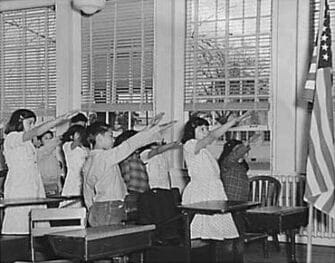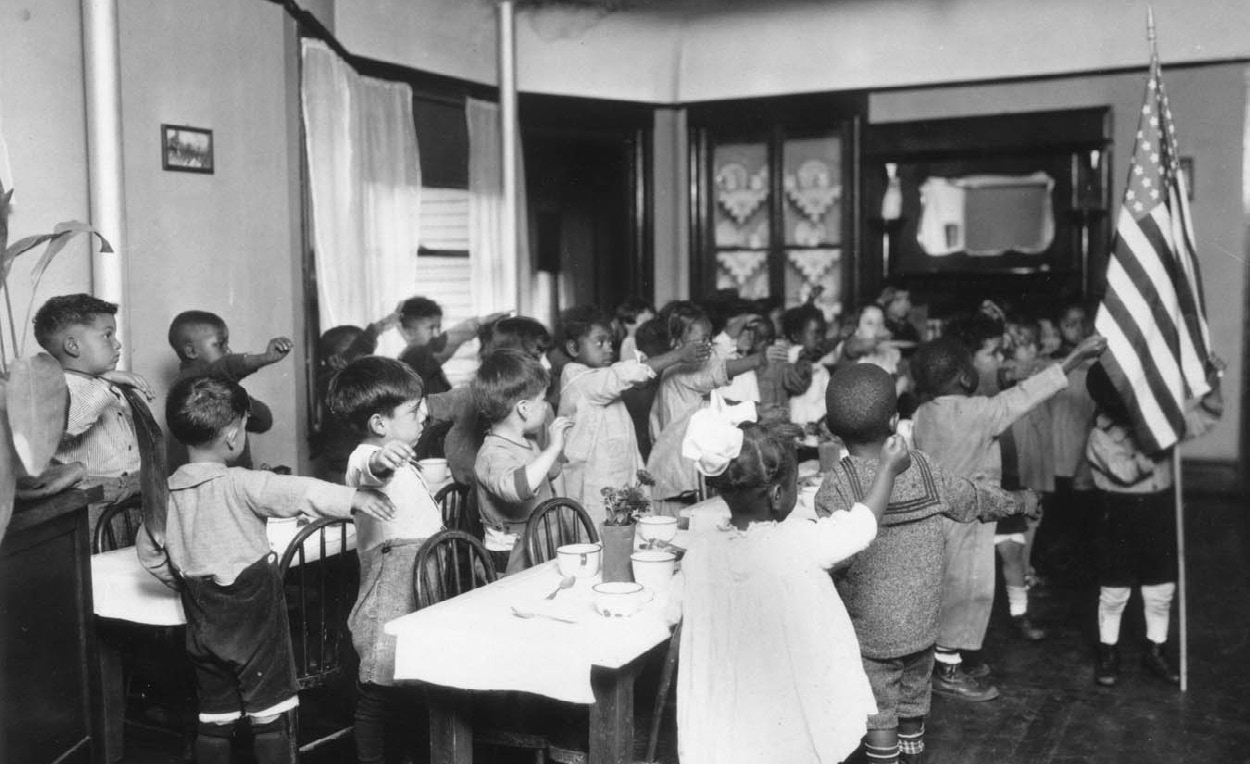On Flag Day, 1943, in West Virginia State Board of Education v. Barnette, 319 U.S. 624 (1943), the Supreme Court invalidated a compulsory flag salute law in public schools and established that students possess some level of First Amendment rights. The decision overturned Minersville School District v. Gobitis (1940) and struck down a West Virginia statute that imposed severe penalties on children and their parents if the children did not comply. The children faced expulsion and parents could be fined $50 and sent to jail for 30 days.

U.S. schoolchildren pledging allegiance to the flag in 1941 in the Bellamy salute. Source: public domain
In Barnette, the Court emphasized that the issue in Gobitis had been whether the children in question could be excused from the flag salute because of their religious beliefs, whereas in Barnette the underlying question was whether “that power exists in the State to impose the flag salute discipline upon school children in general.”
As the Court noted, “the compulsory flag salute and pledge requires affirmation of a belief and an attitude of mind.” One year before Barnette was decided, Congress, too, had considered the propriety of requiring the flag salute and enacted a law officially recognizing the Pledge of Allegiance and also making the salute and statement of the pledge voluntary. This congressional action did not determine the outcome of Barnette but instead emphasized Congress’s view that compelling the flag salute was not necessarily the most effective way to develop and enhance patriotism.
Learn more in Kristine Bowman’s article “West Virginia State Board of Education v. Barnette (1943).”










Twitter
Google plus
LinkedIn